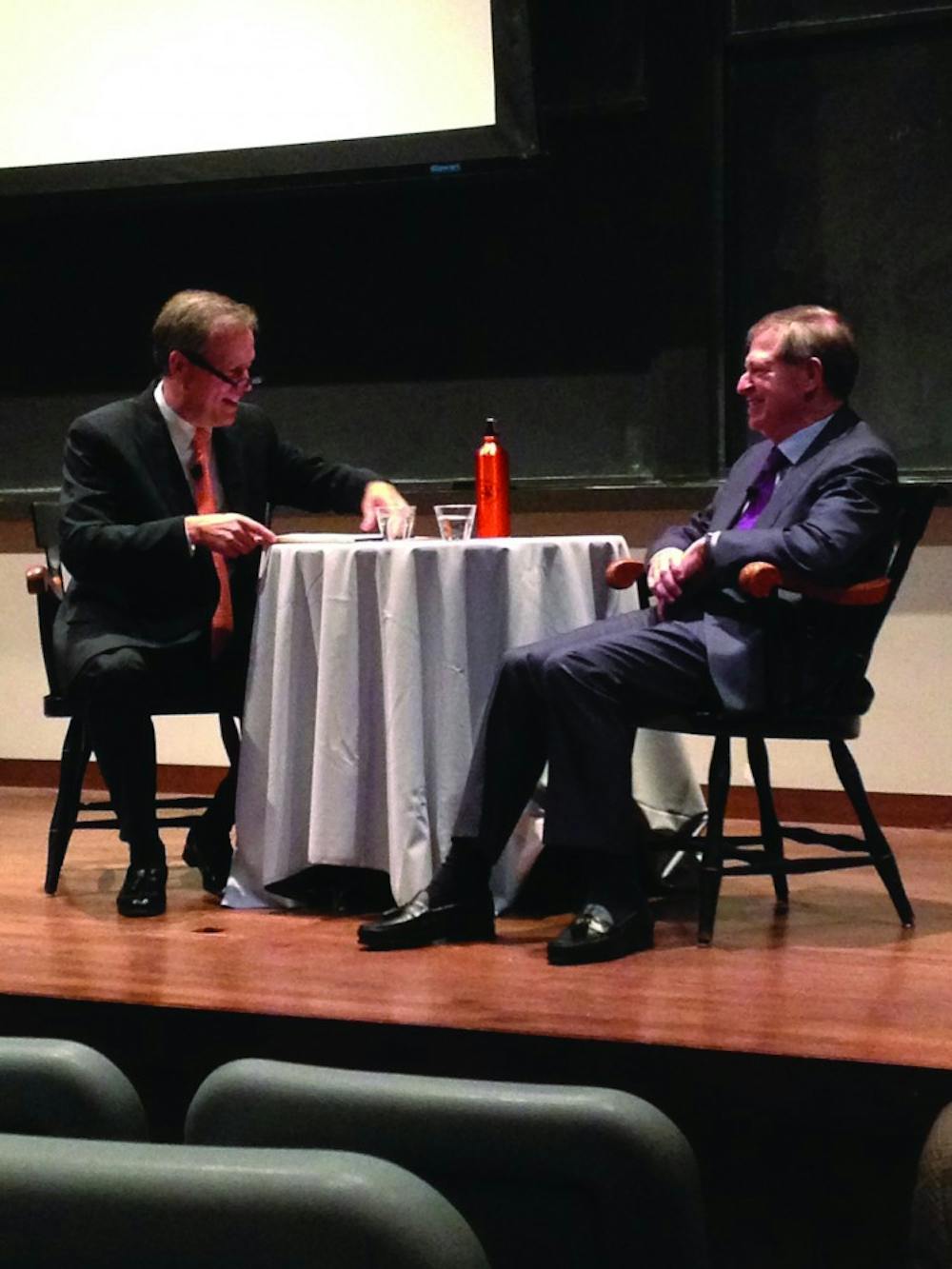David Miller, associate research scholar and lecturer at the University, held a conversation with Myron Ullman on religion and the role it played in Ullman’s success in life, business, and philanthropy.
Ullman is a businessman who has led several global enterprises to success, each based in various places across the globe. He retired from his job as CEO of JCPenny Company, and currently serves on the board of directors for Starbucks Corporation, and is the Chairman of Mercy Ships International. He discussed the lasting impact of religion and philanthropy on his entire career and life.
Miller, who is also the Director of the Faith & Work Initiative, kicked off the talk by recounting their first meeting, during which Ullman was having a difficult time, having been diagnosed with neurological issues. He welcomed Ullman with a video introduction from the Woodrow Wilson Awards for Corporate Citizenship, one of which he received in 2014.
In the video, Vernon E. Jordan Jr., Head of the Board Search Committee at JCPenny, and the man who brought Ullman to the company, described Ullman’s work ethic, saying “He would not be in the office. He would be in the store talking to the employees, talking to the customers… he understood [that] you cannot really appreciate what’s going on in JCPenny if you keep yourself closeted in the comfort of the CEO’s office.”
Ullman discussed his childhood growing up in a small town without being able to read. He went on to study engineering and later changed course and obtained a business degree. Although Ullman grew up in a traditional church environment, it wasn’t until he attended a believer’s class with his wife that he really discovered his faith.
“[My parents] don’t have a lot necessarily, but they’re always involved in something that’s helping and giving,” said Ullman when Miller asked about the influences that sculpted his generosity.
When Miller read out the statistics that “nearly half [the population] give[s] nothing”, Ullman simply responded by saying that, “I think God has given me more for me to be able to give more.”
Miller followed up with questions about Ullman’s generosity in the field of business, about how he handles his companies and organizations, and about how he gives out the organization's money.
Instead of spending the money that they use for donations on profitable things, “we want to be a socially responsible company that takes care of its people and its customers,” said Ullman. “It’s all about trust and integrity."
He recounted a time when JCPenny was on the verge of bankruptcy and needed $2.2 billion to save the company, and within two weeks, Ullman secured the funds from Starbucks simply on the basis of trust.
In addition, when Ullman was first introduced to the JCPenny company as CEO, he emphasized the importance of trust and teamwork by being willing to admit his need for the team’s support while confirming his confidence and determination to help the company.
In the leadership position, Ullman required that his teams understand four things: vision for the company, gender trust, transparency, and honesty. He stressed the importance of teamwork, which requires trust and honesty within the teams and between the employees and the leader.

“You can’t run an organization with people having only their own goals,” he explained.
After the conversation, the speakers opened up the floor to a Q&A session.
“You don’t know how enthusiastic they were coming into work”, replied Ullman to one question about his organization’s campaigns to hire jobless young people.
“These kids are hurt, and a lot of them just need an opportunity.”
Miller concluded the talk with the importance of generosity and trust in not only just one’s business career but also the personal life, as shown by the many life stories shared by Ullman.
The talk with Myron Ullman was part of the Doll Family Lectureship on Religion and Money, a gift established by Henry C. Doll ’58 and his family. It took place at 101 McCormick Hall on Wednesday, Nov. 30, at 7:00 p.m.








